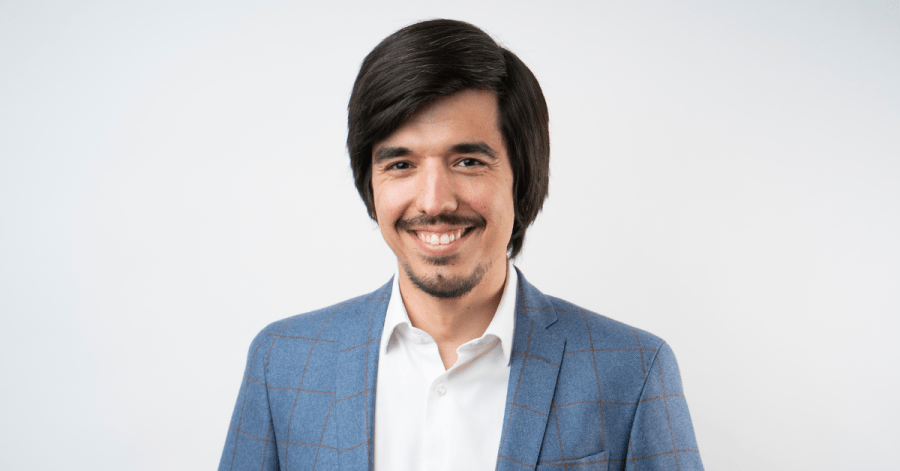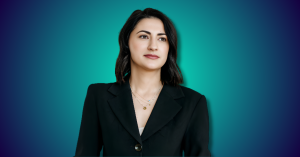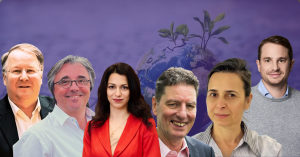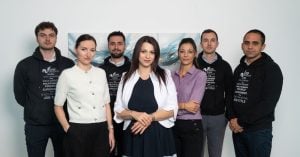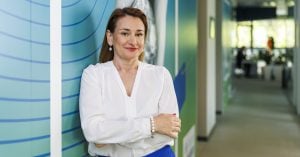How much carbon dioxide do we need to remove from the atmosphere to limit global warming to the 1.5 degrees Celsius target set by the Paris agreement? 1 gigatonne (Ed.note equal to 1 billion tonnes), finds a new study by the Coalition for Negative Emissions. As the latest IPCC update to its Sixth Assessment Report states, it is “now or never” for governments to prioritize climate change risk reduction in decision-making and investment.
For companies, it is yet another, final alarm to build (if they haven’t already) sustainability and transformation plans, and accelerate their implementation. Today, The Recursive explores what is the role of recycling and recycling parks in this transition, with insights from Green Group. According to the company, they contribute an annual reduction of 100K CO2 emissions.
Green Group is the leading recycling park in Romania and one of the largest integrated recycling groups in Europe, part of the Abris Capital Partners portfolio. It was established in 2002, and has since developed across the CEE region, branching into five divisions that handle several types of waste streams: GreenTech/GreenFiber recycles PET; GreenWEEE recycles electronic appliances, lamps and cables; GreenGlass recycles glass packaging; Eltex Recycling is an entity providing industrial waste management services, and Green Resources Management is an EPR (Extended Producer Responsibility) company.
“We close the loop for PET waste, recycling PET into rPET granules (used for producing new PET bottles), and we create polyester staple fiber out of recycled PET (addressing the automotive market, as well as insulation or hygiene market), and PET strap (used by industrial companies to pack their goods). Furthermore, metals and plastics reclaimed from the recycling of electronics and cables are valuable for many industries, while our glass recycling division provides recycled cullet used in the production of new bottles and jars,” Serban Andrei Stoica, Group Director – Strategy and Transformation, tells The Recursive.
In the interview, Serban shares best practices in the implementation of sustainability and transformation plans, what will shape the recycling industry in Romania in 2022, and the growth plans for the group.
#1 The Recursive: What role must recycling play in creating a circular economy? What impact can it bring, both economically and environmentally?
Serban Andrei Stoica, Director at Green Group: Recycling takes a product, which has fulfilled its initial mission of service and would otherwise be considered as end-of-life, and „resurrects” it as a raw material for a new product. Therefore, recycling is actually the setting stone of any circular economy model, being in fact the spring that turns the line into a circle.
The impact of recycling should be viewed from the perspective of what it manages to neutralize. And in this respect, the environmental and the economical impacts that recycling neutralizes go hand in hand.
The majority of resources used in the production of finished goods are in one way or the other extracted from our planet (metals, coal, oil, etc.). We know for a fact that there is a limit to all these resources, and that the exploitation process leads to significant increases in emissions. Moreover, the way in which our daily lives run nowadays adds up to this impact (increased number of cars, increased intercontinental commercial and cargo flights, etc.). All this leads to an increase in the average temperatures on our planet. As the planet gets warmer, the climate begins to change and reacts by developing „side effects”, which show up in the form of extreme weather events. Finally, these extreme weather events affect daily aspects of life: communities being destroyed by storms, forests being erased by fire, rising levels of the sea forcing people to relocate, and so on.
This is where the environmental impact stops and the economical impact starts. Repairing what has been destroyed by extreme weather events, relocating people to different areas, or finding new ways to transport goods on certain routes – all bear financial costs.
In this context, recycling helps decrease the amount of virgin resources extracted and preserve our planet, while it also diminishes the costs that global citizens have to pay because of the impact of climate change.
#2 Can you share with us what are some best practices to follow when implementing sustainability and transformation plans?
Transformation is a process triggered by the need for change due to unsatisfactory performance, be it financial or non-financial.
Knowing where a business should head to is key in defining the transformation process. This is why the first important step is identifying the „North Star” vision for the business, or where it aims to get to.
The second step is aligning the organization towards this vision and making all of the necessary changes for moving in that direction.
The alignment can be done in two ways:
• Starting from how the business is currently run and looking at ways to adjust the organization and prepare it for change. This process is smoother for the organization but it doesn’t actually produce the big changes required.
• Taking a zero-based approach and designing the organization as if it were a greenfield project, which would be ideal for reaching the „North Star”. In this case, the process is harder on the organization because it somehow „ignores” the current setup, while providing faster and more impactful benefits.
During a transformation process, sustainability can come as an additional piece of the puzzle. As businesses are usually run for profit, the economical aspect used to prevail. Nevertheless, nowadays more and more businesses also take into account the environmental impact.
Localization of the business, whether we talk about production businesses or service businesses, is one of the main drivers of sustainability in business: sourcing and selling locally or regionally, and minimizing travel are just some of the ways in which a business can become more sustainable and more efficient at that.
#3 What are the most difficult and the most rewarding aspects of carrying out sustainability and transformation plans?
In all transformation processes, communication is key, yet it is also the most difficult part. A transformation process usually involves a company-wide effort for compiling data and analysis in order to define the way forward. So, in fact, every employee within the company needs to be aware of the process.
In order to perform, people need guidance, clear information on where the business is heading, and what will come along for them. That is why communicating the right messages at the right time is a very important aspect during the process.
Moreover, making sure that the key opinion leaders within the company (which most of the times are not among the formal leaders) are ready and willing to help steer the business in the right direction will ensure the success of the project.
The most rewarding aspect is seeing improvements along the way and realizing which were the decisions that lead to those improvements. As they sometimes say, it’s not about the destination, it’s about the journey.
#4 How is the recycling industry in Romania evolving? What is needed to further surpass existing challenges?
We have a well-developed recycling industry, providing the entire Europe with recycled materials and driving a circular economy.
Green Group is celebrating 20 years of activity in 2022, and we are among the largest recycling groups in Europe.
But separate collection is the backbone of recycling and the fact remains that separate collection in Romania is still underperforming, with only a low percentage of waste reaching the recycling industry.
However, there are encouraging developments coming our way, and we believe that the industry has an immense growth potential: the deposit-return-system will soon be in place in Romania, separate collection is being already implemented in several large cities across the country, and many associations and NGOs are intensifying efforts to raise awareness on the importance of separate collection and recycling.
#5 How can technology and innovation enable progress in the recycling industry?
Technology plays a key role within the recycling process, which is mostly automated. Washing, sorting by color, chopping, extruding, these are all processes done with the help of technology.
Innovation comes in when challenges arise due to the quality of the input or the lack of supply.
It can help by enhancing the capabilities of machinery and making it ready to process a lower quality input into a higher quality end product. And as pressure mounts on supply chains, such as in the case with PET bottles in Europe, where EU regulations are driving a high demand for PET bottles, and consequently supply is tightening, innovation can help defuse it.
#6 The Green Group aims to become a carbon-free recycler by 2025. What steps are you going to take?
We are looking to decrease our emissions resulting from our recycling operations, as well as those from management and support activities.
In order to reduce our industrial CO2 footprint, we plan to use more green energy, close the loop on water by improving water treatment and investing in greener technology equipment across our recycling park. Additionally, we are transitioning towards greener buildings for our headquarters and changing our entire fleet to hybrid and electric vehicles.
#7 What are Green Group’s growth plans in 2022, and further?
For 2022, we have ambitious plans for our recycling park’s divisions. We have already announced new investments regarding a new WEEE recycling plant near Buzau, which will be operational by Q4 2022; the opening of a new glass recycling plant in Romania, and the upgrading of our PET Recycling factory in Slovakia.
Furthermore, we aim to strengthen the position of Green Group in the region, by developing our circular economy model into new key markets.

